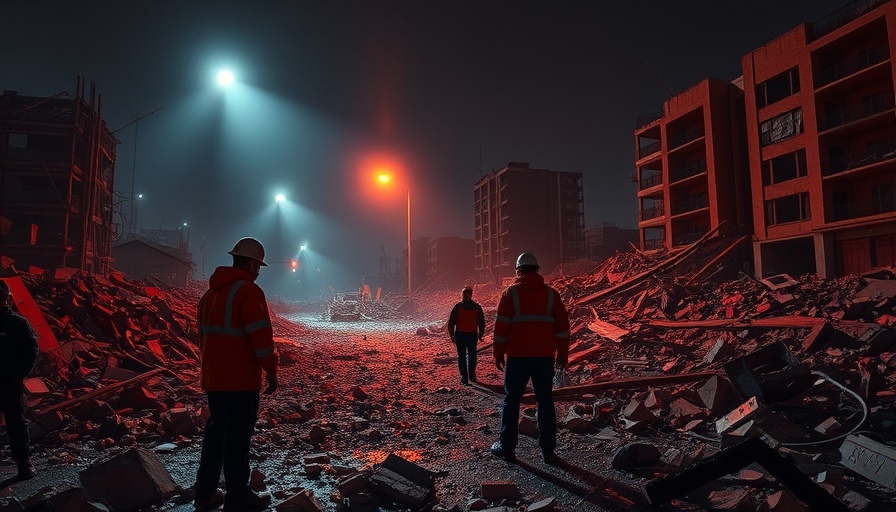
The Harrowing Intersection of Two Wars
In a poignant twist of fate, a Ukrainian family’s hopes for safety were tragically extinguished by an Iranian missile strike in Israel. Mariia Pieshkurova had fled the relentless bombardment of her homeland, seeking refuge in what she believed to be a haven. Israel promised not just safety but also critical medical care for her daughter, Anastasiia, who was battling advanced leukemia. Yet on June 15, disaster struck in Bat Yam—a suburb of Tel Aviv—leading to the deaths of Mariia, her three children, and their grandmother.
This heart-wrenching event serves as a stark reminder of how interconnected our world has become, particularly in the context of war. The geopolitical ties between Russia and Iran often come with a human cost that resonates deeply beyond political discussions. The death of this family—a tragic intersection of the Russia-Ukraine conflict and the ongoing tensions between Israel and Iran—highlights the real emotional toll of geopolitics.
Refuge and Trust: A Family’s Journey
For many families escaping war, the journey toward safety often begins with hope and trust in foreign lands. The Pieshkurovas initially felt they had found sanctuary in Israel, drawn by the promise of safety and health resources. Mariia had pinned her hopes not only on escaping the chaos of her home but also on the advanced air defense systems that Israel prides itself on.
“I really thought they’d be safe,” said Artem Buryk, Anastasiia’s father and Mariia’s ex-partner, when learning of the tragedy. This tragic situation raises questions about the vulnerabilities present even in nations that are seen as secure.
The Broader Implications of War
As the world watches the ongoing conflict between Russia and Ukraine, and now the intensified conflict involving Iran, the broader implications extend beyond borders. The intertwined fates of nations reveal how arms deals and international alliances shape not just politics but the very lives of families caught in crossfire.
In this cruel irony, the Pieshkurovas sought shelter in Israel, a nation that has been a known supplier of arms in global conflicts. The missiles that struck Bat Yam were part of the complex web of international military relations that have ensnared many innocent lives.
Statistics and New Perspectives
As of June 2025, the Israeli-Palestinian conflict, coupled with Iran’s military ambitions, has led to an increase in civilian casualties, sparking debates about military priorities versus humanitarian needs. In the first half of 2025 alone, over 500 civilians were reported killed in Israel due to escalated attacks, highlighting the grim reality of conflict zones.
Hope Amid Despair: The Cost of War
The harrowing loss of an entire family forces us to confront the costs of war directly. It challenges us to examine what safety truly means in a world where geography can no longer offer protection from conflicts that rupture any sense of security. For refugees, countries known for their stability and military strength may not always offer the salvation they seek, leading to deep feelings of betrayal and hopelessness.
As we reflect on this family's story, it also opens conversations about the resources available for those affected by war. Increased attention to refugee policies and mental health support becomes vital in ensuring survivors do not face a second trauma in what is meant to be a safe place.
A Call to Awareness and Action
The tragedy of the Pieshkurova family illustrates the urgent need for a more empathetic global response to individuals fleeing conflict. In understanding their story, we can better grasp the real human costs of war and displacement. Communities, governments, and individuals can work together to create a more supportive environment for refugees, offering not just immediate safety but sustainable solutions for long-term recovery.
In conclusion, as we learn from the losses suffered due to war, it is crucial for societies to be proactive in creating safety nets for those in need. Efforts must be focused not only on military strength but also on humanitarian policies that prioritize the dignity and well-being of every individual affected by conflict. Let us aim to turn our empathy into actionable change to prevent such tragedies from happening in the future.
 Add Row
Add Row  Add
Add 




 Add Row
Add Row  Add
Add 

Write A Comment